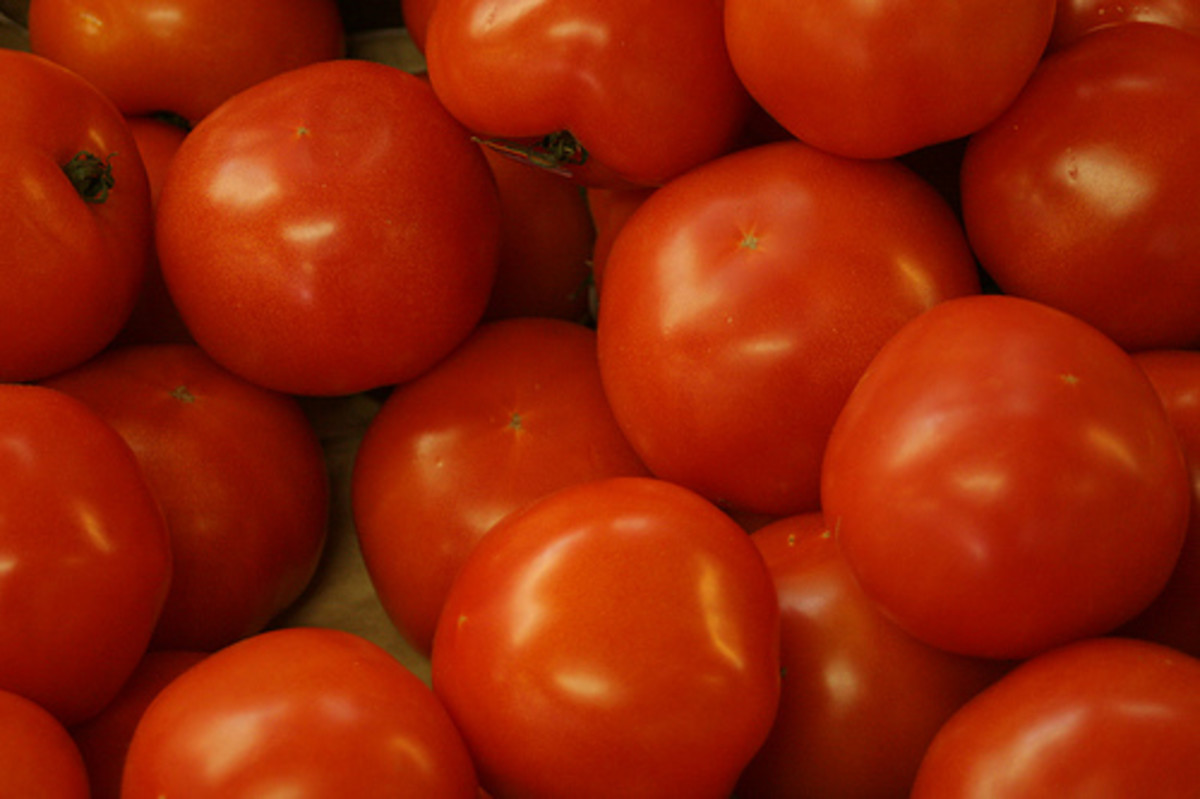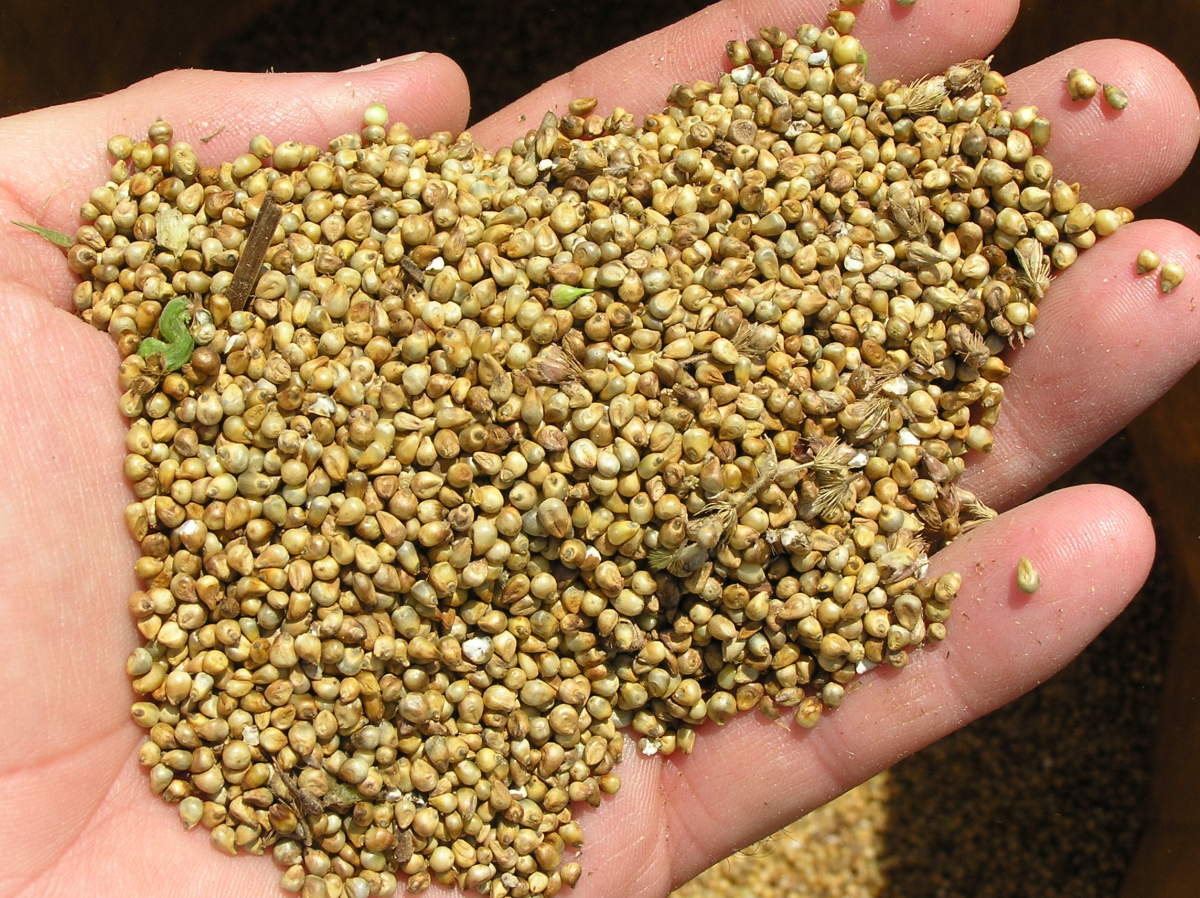The Tomato: Health Benefits of Tomatoes
The health benefits of tomatoes would surprise no one more than 16th-century Europeans, for whom the tomato was a beautiful yet deadly fruit. Yet, while Europeans have only a very recent love affair with tomatoes, the ancient cultures native to America long ago discovered the health benefits of this bright red fruit.
Modern research has been slow to study the tomato, or rather, its nutritional value. Agricultural interests took a great interest many years ago in possible genetic modifications to the plant, but relatively little in understanding its health impact on consumers, except for what they might easily disseminate to consumers for the sake of marketing.
Now, however, with heart disease, cancer, and other illnesses taking an enormous toll on global health resources, academicians have started to wonder: were the Aztecs and other native American cultures onto something big?
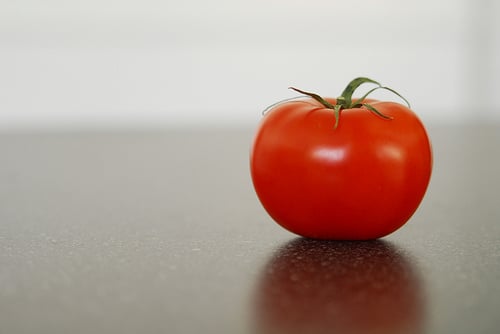
Tomato Health Benefits
Lycopene
Few compounds have received as much press in recent years as lycopene. Studies show that lycopene is not merely a powerful antioxidant, but a powerful defender of DNA, too. Whether you realize it or not, this compound appears in many everyday fruits and vegetables, including watermelon, red bell peppers, and grapefruit. Lycopene is what gives this produce its distinct hint of red.
And tomatoes practically drip the good red stuff.
While lycopene still has a somewhat controversial place among researchers, few people would deny its presence in tomatoes is a very good thing.
- Studies show that lycopene is the most efficient, and perhaps most powerful, destroyer of free radicals.
- Lycopene in lung tissue helps to protect lymphocytes from lung cancer.
- Some studies show that lycopene inhibits the development and growth of cancer cells, particularly in breast, colon, and ovarian cancers.
- Preliminary studies indicate lycopene prevents cataracts.
But don't go running for the supplement aisle quite yet. Researchers believe that other compounds in the tomato may boost, complement, or otherwise be responsible for these test results. That in addition to the added vitamin and fiber should put tomatoes and not supplements on your menu.
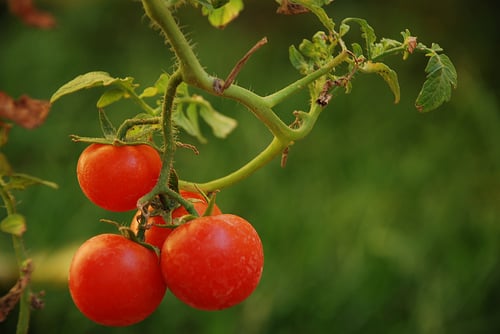
Other Potential Health Benefits
Some other suggested health benefits have strong anecdotal, ethnic, and cultural evidence, but as yet, little research. In most cases, this has nothing to do with the reliability of these claims, but rather, with the relative newness of tomato research. However, the evidence among cultures for whom the tomato is a diet staple is strong. Researchers will likely release information about those compelling links in the next few years.
- Skin Complexion and Health
Making tomato, and lots of it, central to your diet can contribute to healthier skin and a rosy complexion. The high water content of tomatoes and the pigmentation of lycopene work together to make your skin glow.
- Blood Health
Not only does the high water content of tomatoes help the body to flush waste and stay hydrated, but the compounds found in tomatoes, including lycopene, are powerful antioxidants. Tomatoes also contain a generous dose of Vitamin K, which helps blood to clot and prevents hemorrhaging.
- Stress Relief
Much of the tomato's anti-stress qualities may stem in part from its high water and Vitamin A content. The water hydrates the system, while Vitamin A has a positive effect on the immune system, which is a key player in controlling nerve function. Additional links between beta-carotene and potassium recommend tomatoes to the diet of chronically-stressed individuals.
- Heart Health
Vitamin K, Vitamin A, and lycopene have a profound impact on lowering cholesterol and so, protecting against heart disease. The unique cocktail of compounds in tomatoes also have a demonstrable effect on inflammation. Studies have linked decreased inflammation to lower heart stress, which in turn benefits overall heart health.
- Infection
Tomatoes contain nicotinic acid, which studies have found effective in combating infection, especially urinary tract infections (UTI). Particularly of benefit to frequent UTI sufferers is the added water, potassium, and vital nutrients not found in cranberry juice, especially commercially-produced juice. A diet that helps prevent UTIs should include tomatoes.
- Morning Sickness
Here is another instance where hydration and nutrient replenishment, along with the relatively mild flavor of tomatoes, likely has more to do with this benefit than anything else. Commercially produced tomato juices also have high sodium content - the perfect thing to balance electrolytes in a morning sickness sufferer.
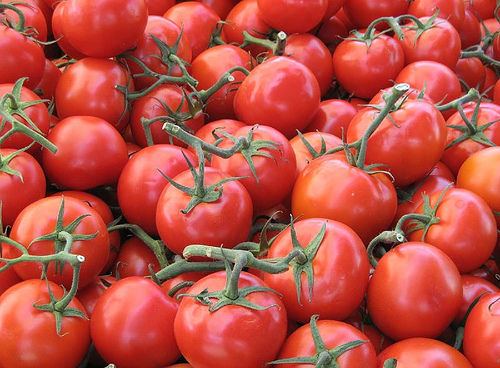
Did you know...?
- The tomatoes Columbus or Cortez introduced to Europe were probably yellow! Early writings call the tomatoes "pomo d'oro" - or, "golden apple."
- Oil, especially olive oil, supports intestinal absorption so efficiently that it can triple the amount of lycopene that makes it into blood plasma!
- Early Europeans wondered if Eve bit into a tomato in the Garden of Eden. That, combined with the 'harlot red' of the tomato, gave it a scandalous stigma.
- Tomatoes come in over 10,000 varieties and several colors, including pink, black, purple, and even white!
Suggested Reading
To learn more about tomatoes, check out the scholarly works consulted for this article, or visit the official USDA tomato webpage!
Suggested Products
Tomato Nutrition Facts
Per 100g: Data assumes a ripe, average tomato
Calories
Total Calories: 18
- From Carbs: 14.2
- From Fat: 1.7
- From Protein: 21
- From Alcohol: 0
Vitamins
Vitamin A: 833 IU (17% DV)
Vitamin C: 12.7mg (21% DV)
Vitamin D: ~
Vitamin E: 0.5mg (3% DV)
Vitamin K: 7.9mcg (10% DV)
Thiamin: >0.0 (2% DV)
Riboflavin: >0.0 (1% DV)
Niacin: 0.6mg (3% DV)
Vitamin B6: 0.1mg (4% DV)
Folate: 15mcg (4% DV)
Vitamin B12: >0.0 (>1% DV)
Pantothenic Acid: 0.1mg (1% DV)
Choline: 6.7mg
Betaine: 0.1
Minerals
Calcium: 10mg (1% DV)
Iron: 0.3mg (1% DV)
Magnesium: 11mg (3% DV)
Phosphorus: 24mg (2% DV)
Potassium: 237mg (7% DV)
Sodium: 5.0mg (0% DV)
Zinc: 0.2mg (1% DV)
Copper: 0.1mg (3% DV)
Manganese: 0.1mg (6% DV)
Selenium: >0.0mcg (>1% DV)
Fluoride: 2.3mcg
Protein
Protein: 0.9g (2% DV)
Carbohydrates
Total Carbohydrates: 3.9g (1% DV)
- Dietary Fiber: 1.2g (5% DV)
- Starch: >0.0g
- Sugars: 2.6g
Fats and Fatty Acids
Total Fat: 0.2g (>1% DV)
- Saturated Fat: >0.0g (>1% DV)
- Monounsaturated Fat: >0.0g
- Polyunsaturated Fat: 0.1g
- Total Trans Fatty Acids: ~
- Total Trans-Monoenoic Fatty Acids: ~
- Total Trans-Polyenoic Fatty Acids: ~
- Total Omega-3 Fatty Acids: 3mg
- Total Omega-6 Fatty Acids: 80mg
Sterols
Cholesterol: >0.0 (>0% DV)
Phytosterols: 7mg
Tomatoes and Cooking
The tomato is excellent raw and excellent cooked: each form has some nutrient trade-offs. Cooked tomatoes demonstrate higher absorption of its carotenoids and flavonoids in eaters, while raw tomatoes retain more nutrients overall. To maximize the health benefits of tomatoes, then, consumers should get plenty of both. Here are some recipe ideas for incorporating both cooked and raw tomatoes into your diet:
- Caprese Salad
- Fresh Tomato Basil Sauce
- Prosciutto, Mozzarella, Tomato, and Basil Panini
- Baked Parmesan Tomatoes
Works Consulted
Levenson SM, et al. "Ascorbic acid, riboflavin, thiamin, and nicotinic acid in relation to severe injury, hemorrhage, and infection in the human." 23 Aug 2011. <http://www.ncbi.nlm.nih.gov/pmc/articles/PMC1803278/pdf/annsurg01380-0050.pdf>.
Palozza P, Parrone N, Catalano A, Simone R. "Tomato lycopene and inflammatory cascade: basic interactions and clinical implications." Curr Med Chem. 17(23):2547-63. PMID: 20491642.
Polívková Z, Šmerák P, Demová H, Houška M. "Antimutagenic effects of lycopene and tomato purée." J Med Food. 13(6):1443-50. Epub: 2010 Sep 27. PMID: 20874227.
Shukla SK, Gupta S, Ojha SK, Sharma SB. "Cardiovascular friendly natural products: a promising approach in the management of CVD." Nat Prod Res. 24(9):873-98. PMID: 20461632.


